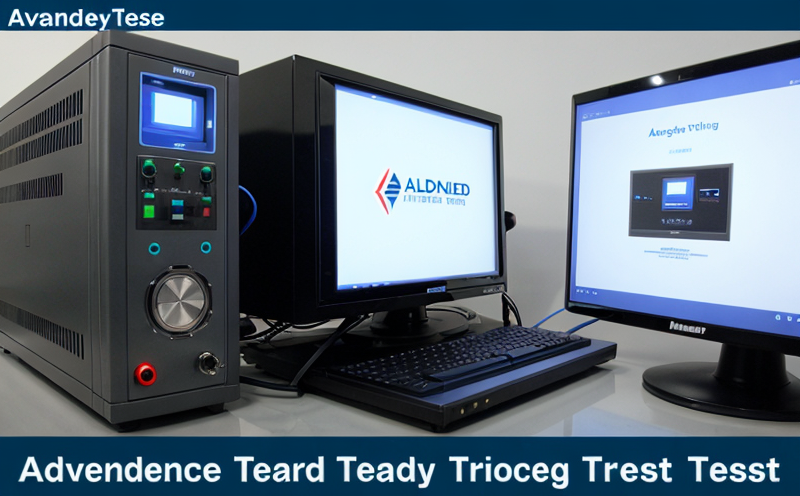IEC 60068-2-30 Damp Heat Cyclic Stress in Advanced Devices Testing
The IEC 60068-2-30 standard is a crucial guideline for evaluating the durability and reliability of advanced semiconductor devices under cyclic damp heat stress. This testing method is essential for ensuring that electronic components can withstand environmental conditions they may encounter during their operational lifecycle, particularly in harsh or humid environments.
The IEC 60068-2-30 standard outlines a series of tests to verify the thermal and mechanical stability of semiconductor devices when subjected to fluctuating temperatures and humidity levels. This cyclic stress test is particularly important for high-performance microchips used in critical applications such as aerospace, automotive electronics, and medical devices.
During this testing procedure, specimens are exposed to a series of temperature cycles from low (-40°C) to high (+150°C), with corresponding humidity levels that can reach up to 98% relative humidity. This aggressive environmental simulation is designed to mimic real-world conditions over extended periods, providing valuable insights into potential failure modes and reliability.
The cyclic nature of the test ensures a more comprehensive evaluation by subjecting the specimens to repeated thermal cycles, which can better reflect the actual operational stress experienced in various environments. The standard also requires the use of specific equipment such as programmable environmental chambers capable of precise temperature control and humidity regulation.
Specimen preparation is critical for accurate testing results. This typically involves ensuring the component is free from contaminants and adhering to strict cleaning procedures. Once prepared, the specimens are placed into an environmentally controlled chamber where they undergo a series of thermal cycles. The duration and severity of these cycles can be tailored based on specific industry requirements or customer specifications.
Testing results are meticulously recorded and analyzed using advanced data analysis techniques. Compliance with IEC 60068-2-30 requires detailed documentation of all test parameters, including temperature profiles, humidity levels, and duration of each cycle. The standard also mandates the use of specific acceptance criteria to determine whether a device passes or fails.
Understanding these parameters is crucial for quality managers, compliance officers, R&D engineers, and procurement specialists who must ensure that their products meet international standards. This testing method not only enhances product reliability but also ensures adherence to global regulatory requirements.
Industry Applications
The IEC 60068-2-30 standard is widely applied across various sectors, particularly in industries where the performance and longevity of electronic components are critical. Aerospace companies rely on this testing method to ensure that their microchips can withstand extreme environmental conditions encountered during space missions.
- Aerospace electronics
- Medical devices
- Automotive electronics
- Military-grade equipment
In the automotive industry, for instance, the standard ensures that semiconductors used in powertrain and safety systems can endure harsh environmental conditions. Similarly, in medical device manufacturing, compliance with IEC 60068-2-30 is essential to ensure the reliability of life-saving devices.
By adhering to this testing methodology, manufacturers can confidently demonstrate that their products meet international standards, thereby enhancing trust and credibility among customers and regulatory bodies. This testing method also supports continuous improvement in product design and manufacturing processes.
Competitive Advantage and Market Impact
Compliance with the IEC 60068-2-30 standard provides significant competitive advantages for semiconductor manufacturers. By ensuring that their products meet stringent environmental stress requirements, companies can differentiate themselves in a crowded market. This compliance not only enhances product reliability but also supports long-term customer relationships and brand reputation.
Meeting these standards opens up opportunities to participate in global markets where regulatory compliance is mandatory. For instance, aerospace companies must adhere to IEC 60068-2-30 when sourcing components for space missions or military applications. Similarly, medical device manufacturers need to comply with this standard to ensure their devices meet strict quality and reliability standards.
Moreover, compliance with international standards like the IEC 60068-2-30 can foster innovation by encouraging continuous improvement in product design and manufacturing processes. This not only enhances product performance but also supports sustainable business practices that are increasingly valued by consumers and stakeholders alike.
Use Cases and Application Examples
- Aerospace Electronics: Ensuring the reliability of microchips used in satellite communications and navigation systems.
- Medical Devices: Verifying the durability of pacemakers and other life-saving devices under extreme environmental conditions.
- Automotive Electronics: Guaranteeing the performance of powertrain control units and safety systems during harsh climatic conditions.
- Military Equipment: Providing assurance that electronic components used in defense systems can withstand battlefield environments.
In addition to these specific applications, IEC 60068-2-30 testing is also beneficial for any organization looking to enhance the reliability and longevity of their semiconductor devices. This includes R&D teams working on next-generation products or manufacturers seeking to improve existing designs.





